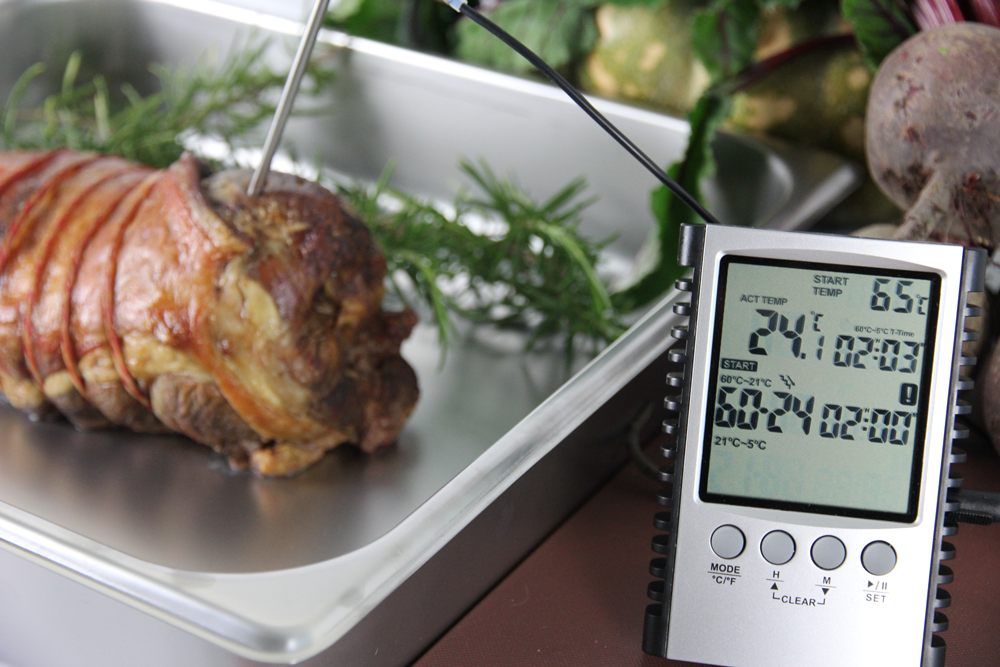Food thermometers designed to protect against food safety problems in every part of the kitchen

Anyone involved in the restaurant and hospitality industry or in food and beverage manufacturing will understand that effectively monitoring and maintaining correct temperature levels is one of the most important factors involved in ensuring food safety and delivering excellent service to your customers. Temperature control covers a broad range of tasks and processes within the commercial kitchen environment.
One of the key points for everyone involved in catering and food production to remember is the food safety ‘danger zone’ between 5°C and 60°C. Food within this range provides the best conditions for potentially dangerous bacteria to multiple which can lead to food poisoning and, in some cases, more serious illnesses. The danger zone temperature range is a risk that must be kept at front of mind and actively guarded against throughout the whole process of food storage, preparation and service. Fortunately, accurate and reliable food thermometers are available to suit a range of kitchen tasks and offer peace of mind by taking the uncertainty out of monitoring temperatures to achieve the best practice food safety outcomes.
Perhaps the most obvious temperature issue is cold storage in fridges and freezers, which require accurate food thermometers to ensure that ingredients and produce are kept within acceptable limits, commonly cited as below 5°C for fridges and -18°C for freezer storage. Industry leaders such as Fildes Food Safety offer customers a wide variety of food thermometers designed for fridge and freezer storage which suit a variety of needs and preferences. Simple, economical and easy to use options include reliable fridge/freezer dial thermometers and digital thermometers which allow staff to consistently monitor cold storage temperature levels with accuracy. More specialised and advanced food thermometer options for fridges and freezers allow you to save time and energy by automating much of the monitoring process and alerting you to address an issue when necessary. A fridge/freezer alarm thermometer, for instance, can be mounted on the outside of the appliance or on a bench and shows a dual digital readout for fridge and freezer temperature respectively. This product allows you to set minimum and maximum acceptable temperature levels and signals to you via a buzzer or light warning when the temperature is outside of that range.
Temperature is also a critical food safety issue during food preparation and service, and food thermometers are an equally important piece of equipment for these parts of your food operation. The major concern with cold storage is that the temperature will rise too high and breach the danger zone levels. The common problem during preparation, cooking and service is that the temperature of the food itself will drop too low and, again, fall into the danger zone for bacterial contamination. Probe-style food thermometers have become another essential piece of kitchen equipment which allows users to reliably and accurately assess the internal temperature of all types of food and check for a safe temperature range. Probe thermometers can be used across a wide range of kitchen tasks and processes including thawing, cooking and re-heating as well as in situations where food is prepared in advance and kept cold or hot in order to be served over a longer period of time, such as from display cases or bain-marie units. Infrared food thermometers can even measure temperature without coming into contact with food and have an accuracy of +/- 0°C between 0°C and 100°C.
Evidently, across the full spectrum of processes involved in food and drink production, food thermometers are an indispensable tool in the defence against bacteria and the resulting food safety issues which threaten to strike down your customers and your business.




















































































